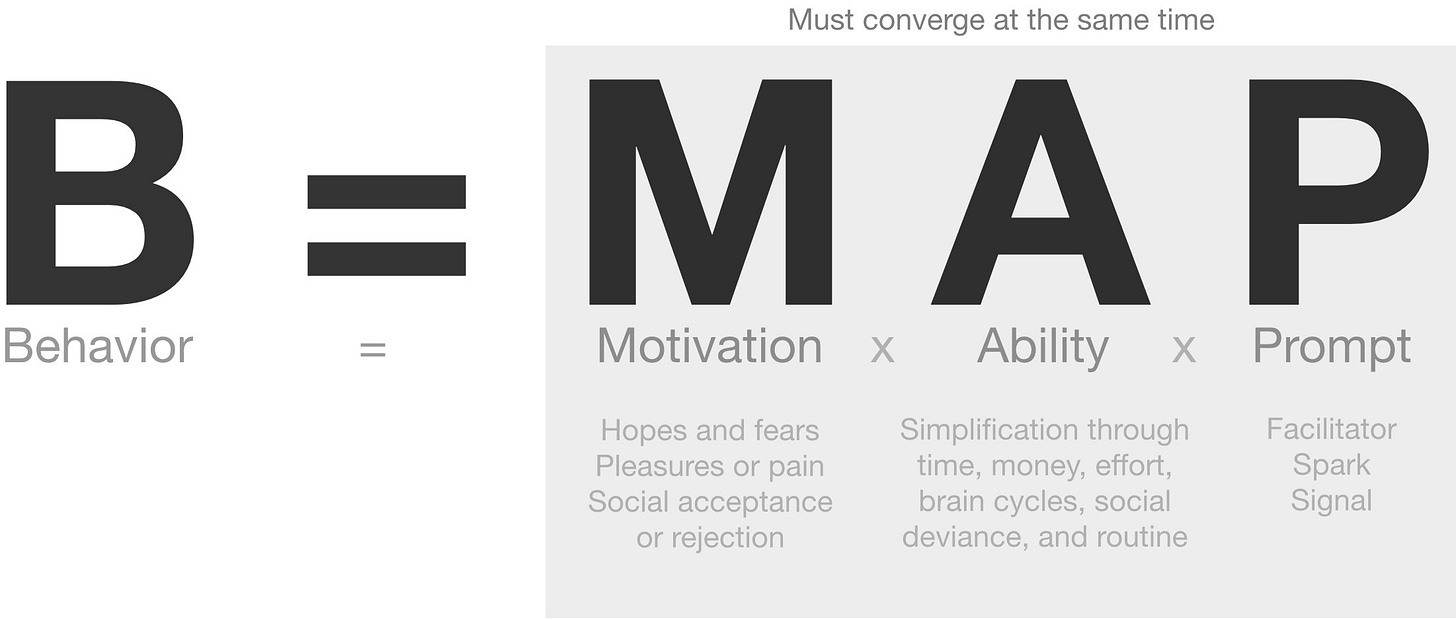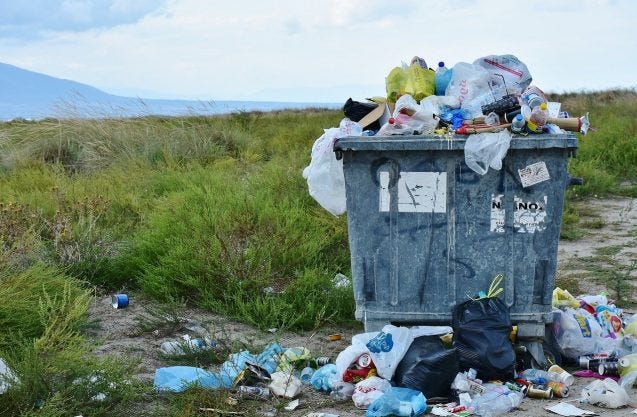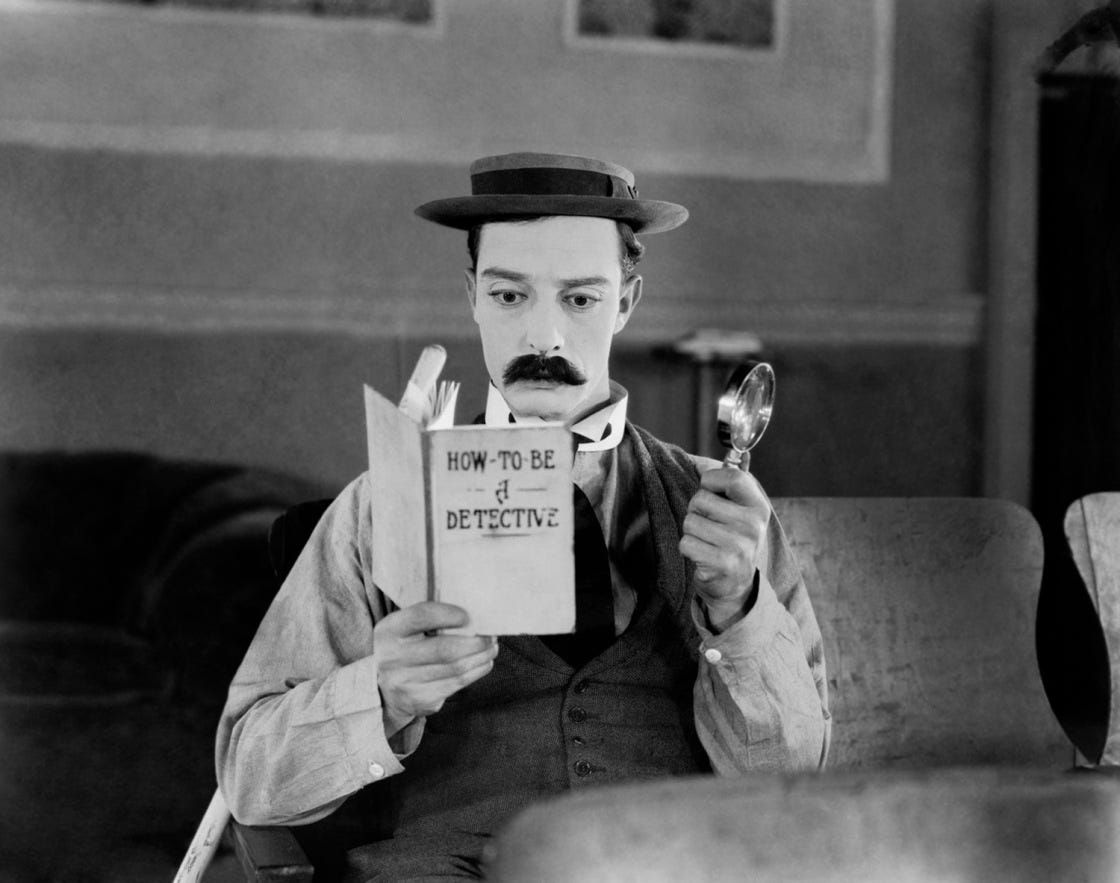Why People Resist Sustainability (And How to Start Changing Their Minds)
What tech companies know about changing behavior that environmentalists don't
Last week I wrote about why doom-and-gloom climate content actually backfires and makes people shut down. This post is the flip side - what you can do instead to actually influence people.
So here's something that's been bugging me for years.
You know how you can casually show someone a funny TikTok and they'll watch it, laugh, maybe even share it? No problem. But the moment you bring up climate change or mention anything about the environment to someone who clearly doesn't give a shit, you get that look. You know the one. The "oh great, here comes the lecture" look.
And if you keep bringing it up? Congrats, you're now the crazy environmentalist person everyone avoids at parties.
Meanwhile, these same people are spending hours every day on social media. Apps that literally make their lives worse, according to basically every study ever done. But they can't spend 30 seconds sorting their trash properly.
It's maddening.
As someone who actually cares about whether we have a livable planet in 20 years, this dynamic makes you feel completely alone. You're out here recycling your containers while your neighbor throws everything in one bag. You're researching the carbon footprint of your lunch while billionaires are taking private jets to get their hair cut or whatever.
You start wondering why you even bother. Life gets busy, you get tired of being the only one who cares, and honestly? A lot of people just give up. It could be you tommorrow.
But what if there was a way to actually get through to people? What if you could make caring about the environment feel as natural as checking Instagram?
It's not impossible, you just need to think like a UX designer
So I was thinking about this the other day.
Facebook didn't become addictive by accident. Neither did TikTok, Instagram, or any of these apps. There are literally teams of psychologists working behind the scenes, figuring out exactly how to make you come back. They're not fighting human psychology - they're using it.
As a UX designer, I've used this stuff professionally for years. We never had to convince anyone that scrolling was important. We just made it irresistible.
So what if we could do the same thing, but for actually useful behavior?
There's this guy at Stanford, BJ Fogg, who figured out the basic formula for changing behavior. It's called the Fogg Behavior Model, and it's stupidly simple:
For someone to do something, three things have to happen at the same time: they need to be motivated, they need to be able to do it, and something needs to remind them to do it.
That's it. Motivation + Ability + Prompt = Behavior.
If any one of those is missing, the behavior doesn't happen.
And here's the interesting part - motivation and ability can trade off. If someone really, really wants to do something, they'll figure out how even if it's hard. If something is super easy, people will do it even if they don't care that much.
Think about your phone. You probably don't wake up every morning desperate to check your notifications. But it's so easy - it's right there, it buzzes at you, you barely have to think. So you do it.
I've designed digital products around this exact principle. Make the desired action the path of least resistance, give people just enough motivation, and prompt them at the right moment. It works every single time.
Why your approach keeps failing (and it's probably not what you think)
Let's go back to your neighbor who throws everything in one bag. Most environmentalists assume he just doesn't care enough. So they try to fix his motivation - show him scary climate documentaries, lecture him about polar bears, whatever.
But what if that's not the problem?
Using Fogg's model, there are actually three possible reasons he's not recycling:
Maybe he's not motivated. He doesn't think it makes a difference, or he doesn't believe he'll personally suffer if he doesn't do it.
Maybe he can't actually do it. He doesn't know which stuff goes where, or he doesn't have space for multiple bins, or the recycling pickup schedule is confusing.
Maybe he just forgets. He supports recycling in theory, but when he's rushing to get the trash out, he doesn't think about it.
The solution is completely different depending on which one it is. And here's the thing - we almost always guess wrong about which problem we're dealing with.
How I got my sister to prevent 50kg of waste (without being preachy)
My sister had been showing some interest in sustainability stuff. She was definitely worried about climate change, but she kept saying she didn't know where to start and didn't have much money to spend on eco-friendly products.
Most environmentalists would have dumped a list of 47 things on her. Buy bamboo toothbrushes! Switch to organic everything! Install solar panels!
But I thought about the Fogg model first. She had motivation (worried about climate change) but low ability (no money, overwhelmed by options). What she needed was something simple that would actually save her money.
So I mentioned one thing: menstrual cups instead of pads. I told her it paid for itself in about 10 months for me, and after that it's basically free periods for years. (I break the math down in detail here)
She was all over it. Made the switch immediately. And just with that one change, she'll prevent at least 50kg of period waste over her lifetime, plus save hundreds of dollars.
The key was matching the solution to her actual barriers, not the barriers I assumed she had.
What to do instead of being a preacher
So here's the thing that actually works: instead of assuming you know what the problem is, ask.
But don't ask in a judgmental way. People can smell judgment from across the room, and they'll get defensive immediately.
Try something super casual like: "Hey, I've been trying to get better at this sustainability thing myself - what's your experience with it? Run into any issues?"
And then actually listen to what they say.
If they mention not knowing where to start or what works, that's an ability problem. The solution isn't more motivation - it's better information or simpler first steps.
If they say it feels pointless because corporations are the real problem, that's a motivation issue. You need to help them see how their actions connect to bigger changes or find ways to make it personally rewarding.
If they say they keep meaning to but life gets in the way, that's a prompt problem. They need better systems or habits that don't require remembering.
Why this changes everything
Once you start looking at behavior this way, everything changes. That person you thought "didn't care" might actually care a lot but feel overwhelmed. That family member you thought was just stubborn might just need different systems.
And when you actually help solve someone's real problem instead of the problem you assumed they had, something amazing happens. They don't just change their behavior - they become advocates too.
I've seen this work in apps I've designed, and I've tested it in my own life with environmental stuff. People who felt hopeless about climate change start making changes. Then they start talking to their friends about it. Not in a preachy way, but in a "hey, this actually worked for me" way.
The tech companies figured out how to hack our psychology to sell ads. Maybe it's time we learned their tricks and used them for something that actually matters.
Put on your detective hat, here is your mission:
Your target: 1 person in your life who could be more environmentally conscious. Someone you actually like and who doesn't immediately run when you enter the room.
Step 1: Go undercover. No lecturing allowed. No sharing articles about polar bears. You're not Captain Planet today - you're Sherlock Holmes.
Step 2: Gather intelligence. Ask them about their experience with sustainable stuff like you're genuinely curious (because you should be). What have they tried? What worked? What was a total disaster? What feels impossible or expensive?
Step 3: Listen like a spy. Don't just wait for your turn to talk. Actually hear what they're saying. Are they missing motivation? Ability? Good prompts? Take mental notes.
Step 4: Deploy your secret weapon. Suggest ONE small thing that actually addresses the barrier they just told you about. Not the barrier you think they should have - the one they literally just described. And here's the key: frame it around solving their problem, not saving the planet. "Here's something that helped save me some money..." or "I found this trick that made my life way easier..." People care about their own problems first.
Step 5: Report back to headquarters. Try it and see what happens. Then tell me how it went - I'm collecting these field reports because they're way more entertaining than another doom-scroll about how we're all screwed.
The truth is, changing minds about the environment isn't magic. It's just psychology in disguise. And if social media platforms can crack the code, so can a bunch of people who actually give a damn about the planet.
But let's be real - you've still got a long road ahead. Changing minds and behavior is hard work. It takes knowledge, patience, and a lot of trial and error. This detective approach is just the beginning.
Here's the thing though - imagine if hundreds of us got good at this. If we all learned how to actually influence people instead of just preaching at them. One person changing one mind doesn't seem like much. But multiply that across a whole network of people who know what they're doing? That's how real change happens.
I'll keep sharing what I learn about the psychology of green persuasion, so consider subscribing if you want to build up your toolkit. Because the planet needs more people who know how to actually influence others, not just lecture them.
P.S. Think you know other undercover environmentalists who could use these tactics? Share this with them. The more agents we have in the field, the bigger impact we can make. Consider it expanding our secret network.









Ooh, I had the "isn't your work just a drop in the bucket" conversation with somebody yesterday about my mending art! I told them that the most important thing was that it was good for my mindset, that making art with thrifted materials and rescuing items from the landfill made me feel better. And that the more we all felt better about having healthy lifestyles for ourselves and the planet, the happier we would be. Seemed to sink in, so fingers crossed..